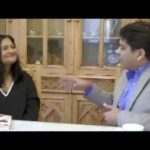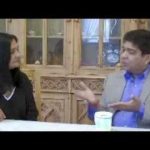5 Mullika Shrivastava interviews Dr Anand on Holistic Health
It is an opportunity for students to practically experience a range of different complementary therapies and the basis on which they work and are used. They will also be encouraged to explore the ideas of holism which includes the concept of mind, body and spirit and the relationship of a person to his/her community and environment. Current ideas and assumptions about illness, health and disease are challenged. This is an opportunity to explore in-depth some of society’s ideas of normality. The strengths and limitations of ‘conventional medicine’ are explored in relation to a holistic approach involving complementary therapies. This module also aims to show students how they can benefit from using techniques they learn to improve their own sense of health and well-being especially in reducing stress. The experience is positive, life-enhancing, enjoyable and memorable.
Description
Before the course starts the supervisors meet with the participants and discuss their educational needs, hopes and aspirations, beliefs and boundaries and then the timetable is built on the basis of that information.
The course is based at the Elmfield Health Group which has a seminar room for student use and also access to a larger room for group practical sessions. The students also go out to the therapist’s clinics.
Each student’s individual needs and interests are explored and they are guided accordingly.
The methods described are integrated into a regular timetable for the students with morning and afternoon sessions. There is a general introductory talk to most of the therapies by each therapist. This is followed up by a number of practical sessions with plenty of opportunity for interaction and discussion.
Each week there is an opportunity to meet patients who have experienced a particular therapy and to talk with both the therapist and GP.
There is a weekly seminar with the GPs and also student presentations and discussion with a lot of feedback about their different experiences.
Students also sit in the GP surgeries at regular intervals and see how patients are educated and introduced to complementary therapies.
The students are also encouraged to follow a particular discipline to a greater depth and may present a synopsis of their understanding of it.
Students are encouraged to keep a reflective log diary.
The therapies are those listed and can be further explored at www.health2000.co.uk
Students have 2 full sessions of a chosen therapy towards the end of the SSC for their personal benefit.
Objectives
The objectives of this Holistic Health SSC include:
To give students practical experience of acupuncture, reflexology, aromatherapy, Swedish massage, nutrition, live blood analysis, naturopathy, heart rate variability biofeedback, real-time O2 & CO2 measurement, colonic lavage, hypnotherapy, spiritual healing, homeopathy, medical herbalism, counseling and art therapy, Bi-Aura therapy, osteopathy, crystal healing, shiatsu, Arts for Health and the Buteyko method for asthma.
To have short courses in a number of different therapies so that they can use their understanding to give support to patients who are already using complementary therapies and guidance to those who are interested.
To familiarize students with concepts of health and healing on a deeper level ie. mind, body and spirit and to go deeper into diagnosis and management rather than mere symptom relief.
To explore the concept that disease has multi-level causes and treatments – physical, psychological, emotional, intellectual, spiritual, social, economic, etc.
To explore Art, Music & Health (www.gurukul.org). To see and experience the power of sound and its effect on EEGs.
To learn how to integrate complementary therapies into day to day patient care and care of the carers.
To give students practical experience of different ways of relieving stress through a multitude of methods from varied sources including Heart Math and Bio-feedback.
To realize the limitations and risks of both orthodox medicine and complementary therapies (defensive medicine, side effects of treatments, addiction to therapies and therapists)
To grow beyond simplistic newtonian ideas and explore quantum physics (Einstein and Stephen Hawking)
To have exposure to complementary therapies in the context of a holistic approach. Dr Anand anandjee Mullika Shrivastava
Leave A Reply
You must be logged in to post a comment.









 Paranormal
Paranormal

